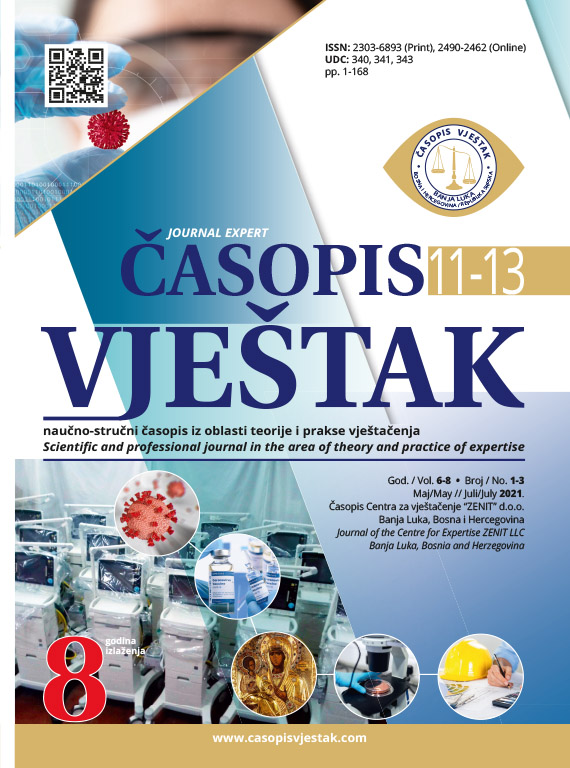Forensic expertise in damages for permanently increased needs
Abstract
In the case law it has been observed that a large number of those injured after the event (injury or illness) have permanently increased needs. Because of the injured, other help is needed to meet basic living needs (when moving, dressing, taking food and meeting other everyday needs). Pursuant to the provision of Article 195, paragraph 2 of the ZOO, the person responsible for the damage is obliged to compensate the injured person in the form of financial compensation resulting from the permanently increased needs caused by the consequences of the event.
So far, the case-law has been known to have an injuries in which the injured person was provided with help on the basis of the invoices for the services of another person, transportation to the destination, medical or other institution. The time for assistance was determined by free assessment.
The basis for other people’s help because of permanently increased needs is considered to be a separate entity and is realized in cases where the injured person needs other help in fulfilling basic living needs, and not those life-saving activities that provide life joy and hedonism.
So far there have been no recommendations for expertise in case of permanently increased needs.
By examining the physical and psychological consequences, the expert determines functional impairment as the basis for determining the need for someone else’s help due to permanently increased needs.
The authors propose the medical necessity of someone else’s help when, due to the overall consequences of the disorder concerned, the functional impairment of the injured party is 100% or more. (qualification for further procedure).
The reduced value of the consequences of the drop-down menu for the subsequent procedure is attained to determine the indicative time for someone else’s help.
The basic actions in which no other help is required (passive part) such as sleeping, bed rest, sitting on a bed or armchairs where the share of someone else is helpful to the minimal and active part (physiological needs, bathing, haircutting, nail cutting, self-pulling , dressing, footwear) where the share of someone else’s help is much higher.
By applying an active part of basic living needs in relation to a reduced value, the drop-down menu shows the indicative time for someone else’s help.
It is expected that the help of another person for a period of one to several hours per day will significantly contribute to raising the quality of life of persons with permanent consequences of injury or illness.
The proposed method would allow for a precise evaluation of the consequences of damage and determining the time needed for someone else’s help due to permanently increased needs.
